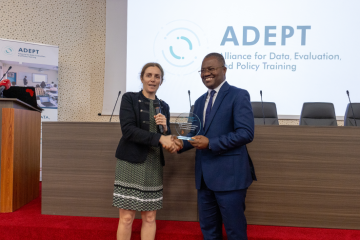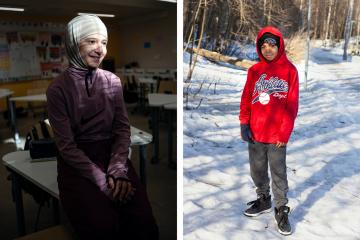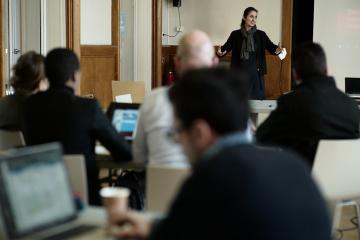
Three takeaways from past participants of J-PAL Europe's summer school
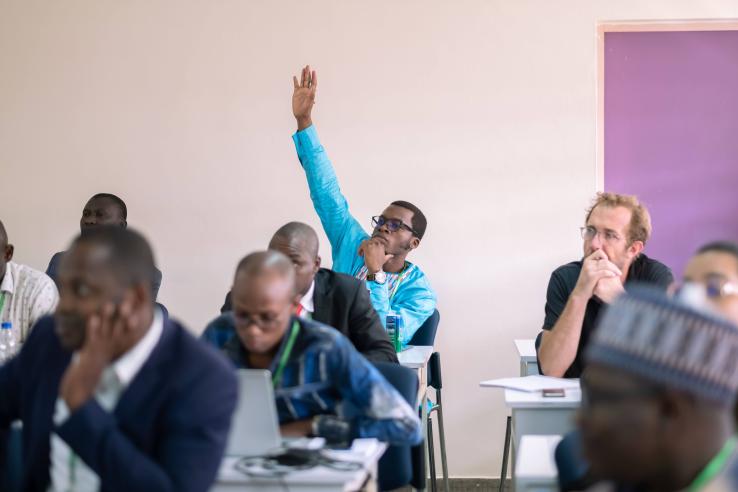
Since 2021, J-PAL Europe has organized yearly summer schools in partnership with the French Development Agency (AFD), the Fund for Innovation in Development (FID), J-PAL Africa and different local institutions, as part of the Development Methodologies Chair.1 The consecutive summer schools, held online in 2021, in Abidjan in 2022 and Rabat in 2023 and 2024, have benefited 120 researchers from more than 20 African nationalities. We interviewed six researchers (women and men from six countries on the continent with different research interests) from the most recent summer school to understand how they became interested in impact evaluations and what they learned from their training week. This blog post is intended to give participants a platform to share their experience.
A growing demand from researchers on the continent to undertake more experimental work was a catalyst for launching the summer schools. This advanced training course seeks to ensure that policy-relevant research in African countries is anchored and led by local academic institutions and teams. Ultimately, the summer school aims to provide a forum for skill-building and exposure to mentors and peers in impact evaluation.
The summer school offers researchers from the African continent the opportunity to deepen their understanding and gain practical experience conducting rigorous impact evaluations. Although researchers are its primary audience, the summer school also offers complementary training for policymakers and practitioners.
The summer school’s program alternates between theoretical lectures taught by J-PAL affiliated researchers and more hands-on sessions focused on case studies and exercises and facilitated by post-docs or J-PAL senior research staff. In addition, participants are able to present their work and receive feedback from researchers.
During our conversations, participants highlighted three ways in which they have benefited from the summer school:
- Participants were able to refine their technical skills;
- Participants fostered a network of impact evaluation experts and peers;
- Participants gained access to essential resources.
We explore these aspects further in the paragraphs below.
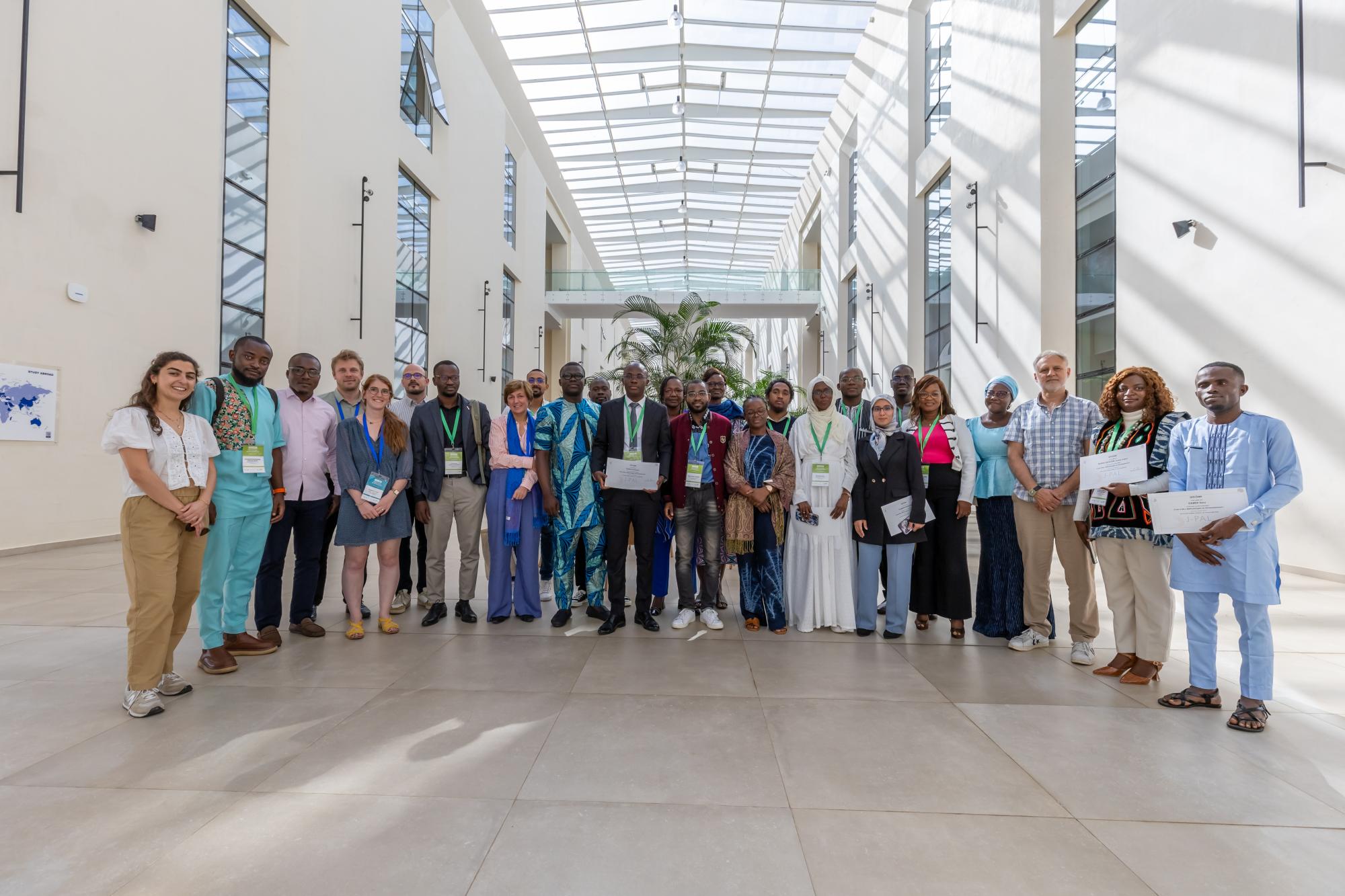
Photo Credit: Clic Event
The summer school helped participants refine their technical skills
Almost every conversation with interviewed participants began with their reflection on the summer school’s advanced training course. The academic module’s curriculum is designed to help participants reinforce their understanding of key concepts and good practices in the design and implementation of randomized evaluations. Across the board, participants appreciated the technical skills they acquired during the training. Interviewed participants cited different aspects of the curriculum that stood out to them, such as: developing a theory of change, thinking through measurement and indicators, accounting for spillovers, and running power calculations. In addition to these lectures, participants were able to present their own research and get feedback from J-PAL affiliates.
At the end of the training, participants also expressed a greater degree of confidence in putting what they had learned from the advanced training course into action—to better conceive and run randomized evaluations on the ground.
According to one participant from Cameroon,
“The training is going to help me in developing good evaluation ideas that are feasible… In regards to implementation, we learned a lot. Before, I thought about programs from an academic point of view. Now I look at them from a practical perspective.”
Beyond the overall appreciation for the content of the summer schools academic module, one participant from Côte d’Ivoire gave his view on the importance of having these skills certified:
“My hope is that having a certification from J-PAL on impact evaluation will open doors for research down the road.”
The summer school fostered a network of impact evaluation experts and peers
Interviewed participants also appreciated the connections they were able to make—both with leading experts in the field and with peers from across the continent. One participant reflected on the isolation some researchers in Africa can feel in regards to tapping into a network of experts. The summer school brings J-PAL affiliated researchers to teach and mentor academics dedicated to furthering impact evaluation on the continent, thereby aiming to provide equal access to the research ecosystem that peers in high-income countries can tap into.
A participant from Senegal discussed her encounters with one J-PAL affiliate, Karen Macours, in her interview,
“The summer school allowed me to access a network of highly-skilled researchers in impact evaluation… Professor Macours spoke to me about a number of projects, as she herself works on agriculture and climate change. We are now looking to work on a project together in the future.”
In regards to forging new connections, interviewed participants expressed excitement around the contacts they were able to make with peers and the possibility of growing their network in the future.
One participant from Burkina Faso shared her reflections:
“The advantage of the summer school is that it allows for the creation of a network of researchers from a variety of nationalities. We hope to stay in touch and be able to build projects together going forward.”
Another participant described how some attendees were already organizing to keep the line of communication open:
“We even made a WhatsApp group where we share information regularly.”
The summer school facilitated access to essential resources
Interviewed participants also appreciated the information organizers shared with them both in terms of general resources on impact evaluations and sources of funding. One researcher stressed the importance of having access to J-PAL resources to continue upgrading her knowledge about randomized evaluations and keeping up to date with the latest research and methods.
Participants were pleased with discussions about their needs and the challenges they sometimes face conducting research in Africa. They notably highlighted the need for information about funding opportunities. To help address this need, AFD and FID presented their research grant schemes during the 2024 summer school edition, which participants reported to be very useful.
One participant shared her view on the role of communication within academic institutions and supporting researchers in identifying existing funding opportunities:
“Oftentimes, in universities on the continent, funding options are not well communicated. We’re happy to learn that these resources are at our disposal. I am planning to apply for these grants in upcoming years.”
Looking ahead
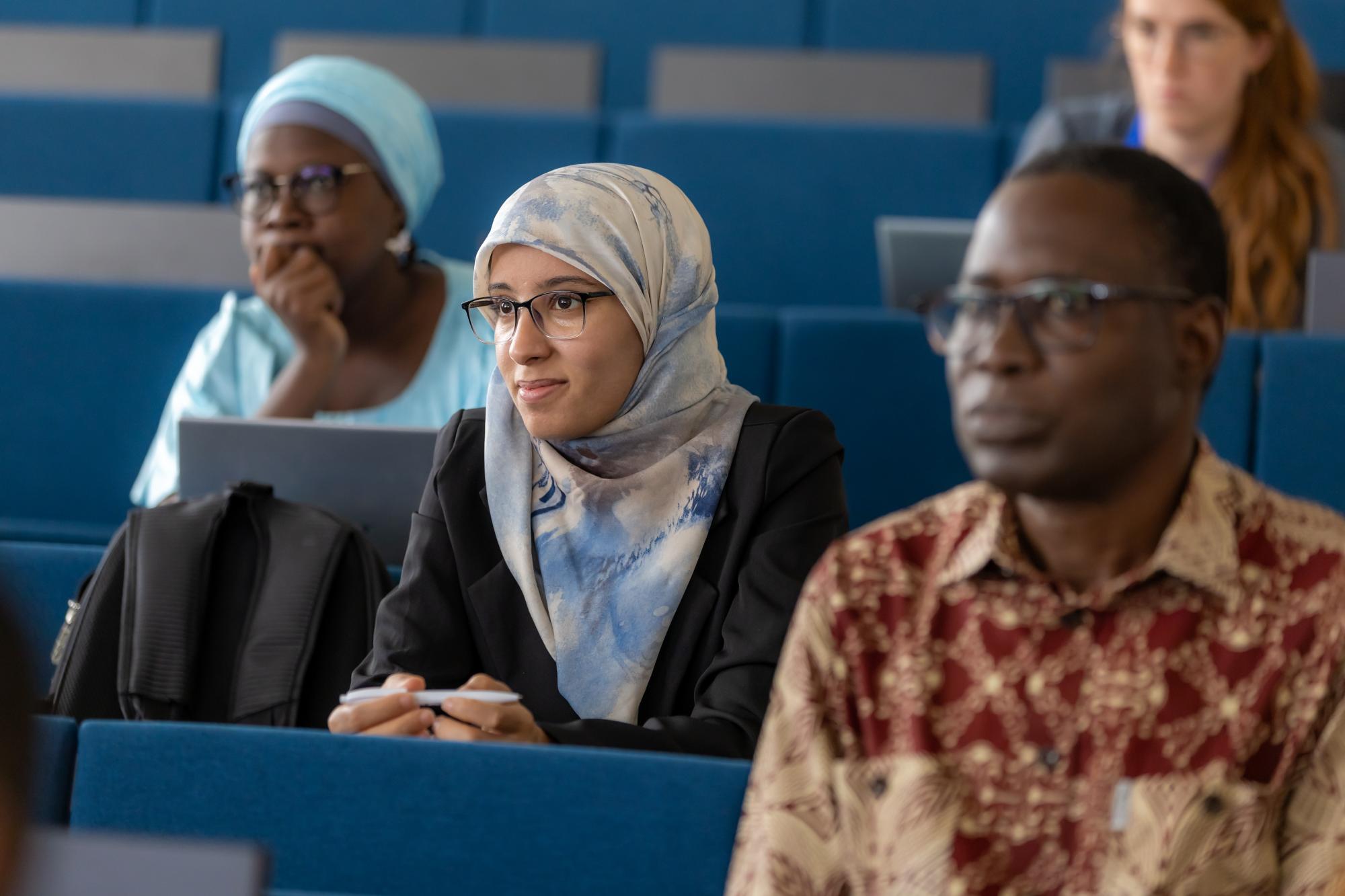
Photo Credit: Clic Event
The voices highlighted above are a testament to how the summer school’s vision is coming to fruition. Each year, the summer school offers researchers not only the opportunity to improve their technical skills, but also exposure to a broader network of impact evaluation experts and peers who want to take rigorous evaluations to the next level. Summer school alumni have shown a continued interest in J-PAL’s training offerings and expressed their desire to take part in new summer schools. Summer school alumni can apply to J-PAL’s African Scholars Program and J-PAL’s MENA Scholars Fellowship, which can give them access to mentorship and funding opportunities.
As J-PAL prepares for the fifth edition of its summer school, the organizers are reflecting on ways to further engage with previous cohorts. Some reflections revolve around practical ways to continue to engage alumni, broadening the scope of the summer school to include more early-career researchers, and further tailoring the curriculum to meet the needs of different researchers. J-PAL and its partners will be pursuing these reflections over the coming months to ensure upcoming editions build on previous learnings and experiences. Alumni are encouraged to get in touch with the organizers if they have any thoughts or feedback on the program. We are happy to take these into account as we plan for future editions of the summer school.
New candidates interested in participating in the 2025 edition of the summer school can learn more about the program and apply on the summer school event page, available in English and French.
1. The Chair is held by Esther Duflo and Abhijit Banerjee and funded by the French development agency to foster research in development economics in order to inform public policies in the development field.


